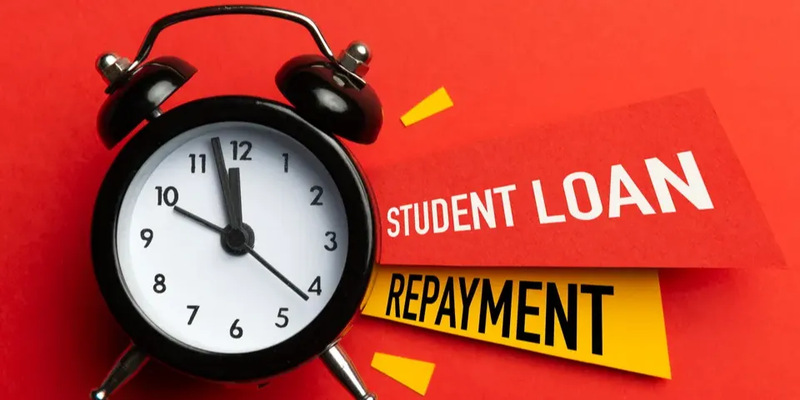Advertisement
Financial support is very important for students to pay for their learning. However, it can be hard to keep this help because of different things like changes in money situation or school grades. If students cannot get financial aid anymore, it may feel scary and overwhelming. Luckily, there are procedures to recover financial aid eligibility, and knowing this process is very important. This article will offer a complete guide on how to handle the difficulties and successfully regain qualification for financial support.
To get back your financial help, you must first understand why eligibility was lost. Regular things that can alter your status encompass changes in money earned, not performing well enough academically, or not fulfilling necessary paperwork. Every institution might have unique criteria. Hence, it's crucial to check your financial aid condition. To understand your specific situation, you must communicate with the financial aid department of your school. Knowing why you lost it will help in handling the problem correctly and getting ready for a successful application again.

After you find out why you lost your eligibility, the following step is to reevaluate your financial condition. Suppose there has been an enhancement in your monetary situation after the previous application; it might be possible for you to present fresh information that can aid in validating your argument. Keeping track of any alternations in earnings or costs could assist representatively with demonstrating what kind of fiscal assistance is required currently. It is very important to gather proof documents like tax return papers, wage slips, and any other necessary financial data. These official records will act as support when you talk with the financial aid office about your requirement for help.
For getting back your financial aid eligibility, it is required for you to fill out the financial aid application with accuracy and complete detail. The most used form for federal financial help is Free Application for Federal Student Aid (FAFSA) but there might be more forms by some states or colleges. Keep an eye on deadlines because if you submit late, it can lessen your possibility of getting aid. As you complete the application, make sure that all information is updated and accurately represents your financial state. If there are mismatches or errors, it can cause holdups or rejections. Once you have submitted it, do remember to check in with the finance aid office to make certain they received your application and are processing it.

Sometimes, students might see that their applications are rejected or they do not get their eligibility back even after trying hard. If you feel your case needs more examination, there is the option to appeal. Usually, this process of appealing requires giving a written application to the financial help office and explaining why you need it with the necessary papers for support. Explain your situation simply and directly, emphasizing any important changes in your life's circumstances. The way to appeal can be different depending on the school, so you must obey the special instructions given by your institution. If you are persistent and clear with what you want, this could give good results generally in these types of situations.
Many students find that their grade performance is very important for maintaining financial help for their studies. If you need to get your financial aid back, it's necessary to show good academic progress (SAP). This usually needs having a certain minimum GPA and successfully finishing some proportion of the courses you tried. It's vital to know what the SAP rules are at your school since these can vary quite a lot from place to place. If you are having trouble with your studies, think about using the academic help services that your school provides. This can include tutoring or counseling sessions. If you use these resources, it will be beneficial for bettering your grades and also help to get back on track as far as receiving your financial aid is concerned.
Communicating well with your school's financial aid office is very important during this process. Building a good relationship with the workers there can give you helpful knowledge and help. Don't be shy to ask for clear explanations about rules, due dates, and any possible support they might provide. Keep all communication records, such as emails and meeting notes, to make sure you have a clear comprehension of your circumstances. Regular follow-ups can show your dedication towards regaining eligibility and assist in keeping your case under their review process.
To conclude, to get back the eligibility for financial aid, it is vital to know why you lost it in the first place. Then assess your financial situation and fill out the necessary applications with accuracy. Also, keep constant contact with your college's financial aid office. If you do these things, it should increase the possibility of getting help financially that you need for continuing education. Your case might be different from others so the important thing is to adjust your strategy based on your circumstances and rules at the school where studying.
Advertisement

By Darnell Malan/Feb 28, 2025

By Elva Flynn/Feb 28, 2025

By Mason Garvey/Dec 10, 2024

By Korin Kashtan/Nov 07, 2024

By Martina Wlison/Nov 08, 2024

By Jennifer Redmond/Mar 16, 2025

By Kristina Cappetta/Mar 18, 2025

By Isabella Moss/Nov 09, 2024

By Susan Kelly/Feb 28, 2025

By Tessa Rodriguez/Dec 10, 2024

By Celia Kreitner/Dec 08, 2024

By Susan Kelly/Mar 17, 2025